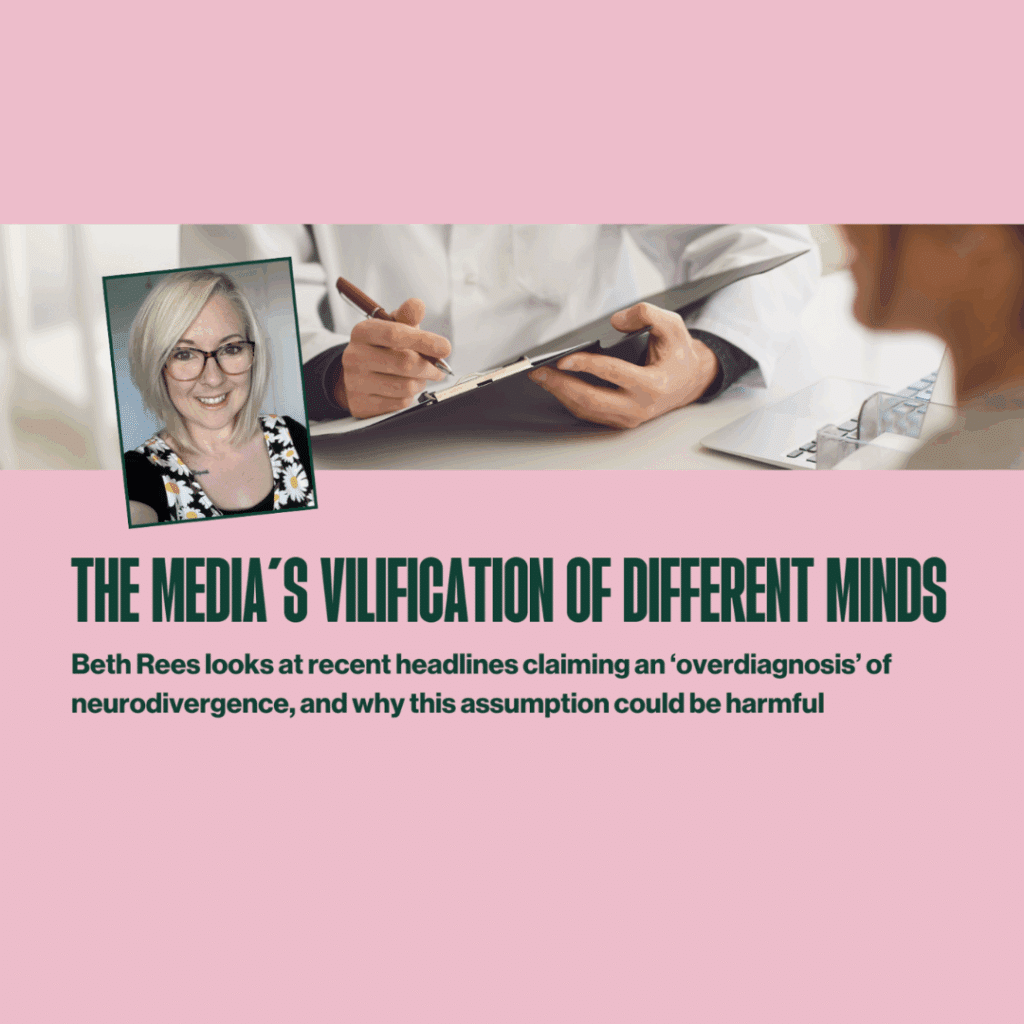Opening ‘X’ for the first time in months, I wasn’t expecting to see myself and millions of other ADHDers being compared to Hitler.
I wasn’t expecting to see a cartoon from a well-known political publication, not only making fun of the condition, but implying Hitler may’ve used ADHD as an excuse for his horrific crimes if he was around today. Neither was I expecting the IPSO to ignore complaints and say it was ‘clear satire’ and that because the publication didn’t outrightly say Hitler had ADHD, there was nothing wrong with the piece.
In the past few months, there’s been a growing shift in how the mainstream media talks about neurodivergence and mental health. For years we’ve navigated the whispered ableism throughout society, with comments like ‘everyone’s a bit autistic’, ‘we all have sad days’ and ‘ADHD’s an excuse’. We’ve lowered our voices when talking about our conditions, been accused of ‘playing the system’ and been made to feel like a burden for needing support because we’re ‘high functioning’. Instead of understanding, we’ve been met with hostility and instead of raising awareness and getting people’s experiences out there, the media is making life increasingly difficult. Especially in the past few months.
Back in March, the UK Government announced it was looking to make £5bn worth of cuts to the benefits system, estimated to negatively impact around 700,000 people in the UK and around 225,000 in Wales. In an interview with the UK Health Secretary, Wes Streeting chose to spotlight neurodivergence and mental health to support his ‘overdiagnosis’ rhetoric (he was obviously qualified to make this determination having not gone to medical school). Within minutes, overdiagnosis in relation to both conditions hit the headlines. This, however, is nothing new. Despite guidelines being created by organisations like the Mental Health Media Charter, some outlets continue to cause harm through reinforcing outdated stereotypes, using misleading language and simplifying complex conditions.
For example, since the airing of a BBC Panorama episode (‘Private ADHD Clinics Exposed’) in 2023 about the legitimacy of private ADHD assessment centres, attitudes towards the condition have become increasingly negative. Terms like ‘overdiagnosis’, ‘sickfluencer’ and ‘epidemic’ often accompany ADHD or mental health in headlines. A few examples include:
‘ADHD, autism, cancer: this doctor says overdiagnosis is the issue’
‘How the internet diagnosed the entire world with autism and ADHD’
‘Revealed: GPs are over-diagnosing mental health conditions’
‘The number of people with chronic conditions is soaring. Are we less healthy than we used to be – or over diagnosing illness?’
‘The charts that show the rising benefits cost of ‘overdiagnosis’
With an increase in people searching for information about neurodiversity and mental health, the impact of this negative language could have a detrimental effect. It could prevent people asking for help in crisis or be refused support from the NHS because they’ve been influenced by headlines. (When I spoke to my GP about an assessment for ADHD in 2021, he said, ‘Oh I’ve read about this…did you ‘diagnose’ yourself from TikTok?’).
Language has the power to cause further polarisation in a society that’s already divided and increase existing stigma and discrimination. It could nullify people’s experiences making platitudes like ‘It’s ok to not be ok’ void of real meaning. It could also create barriers to accessing necessary support, which, given the current threat of benefit cuts, works in the government’s favour.
In a time of uncertainty, division and the rise of fake news, the mainstream media should be asking the right questions, holding people and organisations to account, and not demonising groups in society who are easy targets for scaremongering headlines. Journalists should be looking at society as a whole and asking questions like: Why are so many people struggling with their mental health? Why are so many people being diagnosed neurodivergent later in life? Why are there such high rates of unemployment in working aged people? What are the causes? This would be a more productive and fairer approach, instead of amplifying the voices of outrage who guarantee clicks on pages and comments in boxes.
Voices from people in the neurodiversity and mental health communities weren’t shared during the ‘overdiagnosis debate’ but should’ve been. To explain that it’s not ‘easy’ to see a psychiatrist or be prescribed medication. That you don’t just rock up to a GP, ask for an autism/ADHD diagnosis and they ‘just hand them out willy nilly’ (a psychiatrist’s words, not mine).
As a neurodivergent person who’s struggled with their mental health all their life, representation and balance in reporting would go a long way. It wouldn’t make me feel like a burden or something to be ashamed of. Seeing mainstream journalists write about the lack of appropriate mental health support, misdiagnosis, failing assessment services, and attitudes to neurodiversity and mental health at work would be reassuring and validating.
It’s time for media outlets to do the right thing. It’s easy to blame those who don’t have a voice. It’s easy to mock what you don’t understand. It’s easy to accept assumption as fact.
But they must learn that it’s also easy to advocate for a more inclusive and understanding approach to mental health and neurodiversity; to not vilify the vulnerable by giving a platform to click-bait portrayals.






